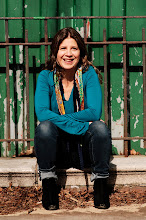
I kept catching glimpses of good reviews of this movie. (I say glimpses because I don’t read reviews before I see movies…maybe just a first line to see if the thing is a total abomination or intriguing.)
And it won awards for best actress (Michelle Williams) and best director (Kelly Reichardt) from the Toronto Film Critics Association. It was also nominated for best feature and best lead by the Independent Spirit Awards.
AND it appeared on something like 80 critics top ten lists.
All of which is to say I had kind of high expectations that it was going to be one of those indie gems. But I walked out thinking, well, it was a nice little movie but it felt kind of…. film school. Which isn’t a bad thing, mind you. I guess I was just expecting something different.
The premise is so simple I’m at a loss for how to describe it without literally giving away the entire story. I saw it at Film Forum, where they had posted A.O. Scott’s review in the New York Times on a big poster board, and Scott gave the story away in the span of about 8 words. I didn’t count, but I’m actually not exaggerating.
This isn’t a movie about a lot of action, or big ideas (though Scott had a lot high falutin’ notions paralleling Wendy to today’s economic crisis). It’s a little poem, a close up photograph, of a young woman living on the edge, with not a lot to call her own, or a friend, but her dog, Lucy. And that’s as much as I can tell you without blowing it for you.
One of the reviews I read AFTER the fact called it a political movie without any political grandstanding…which is an interesting thought, and possibly true, and makes me like the movie better…I’d be curious to hear what any of you think.
I don’t want this to sound like a pan. It’s not. The movie is very focused, very intimate—there’s almost no soundtrack, other than Williams humming a haunting little tune—and paints an interesting portrait…it’s just…little in scope, like looking under a magnifying glass.
Reichardt, the director, is regularly described as an up-and-comer. Two of her earlier movies, River of Grass and Old Joy were pretty highly celebrated. She’s known for her “narratives of the road” and landscapes—two themes which definitely run through Wendy and Lucy. In fact, I think one of my favorite moments in the film was a scene in which Wendy is standing, contemplating the woods, and you actually hear the wind rustling the trees. In a bigger budget movie, we’d be hearing a soundtrack.
Ultimately I’m on the fence on this one…it could be that this movie suffered from being seen on the heels of Revolutionary Road, which was definitely a big budget movie, and big on ideas and action. It could be it isn’t as good as the critics say—though there are certainly a lot saying it’s good. It could be I need to see Reichardt’s earlier films—and that if I do, I’ll see this movie as part of the continuum and find her more interesting. Though shouldn’t a movie stand up on it’s own?
I don’t know. I may have to Netflix those earlier movies. I’ll let you know if I do.




No comments:
Post a Comment